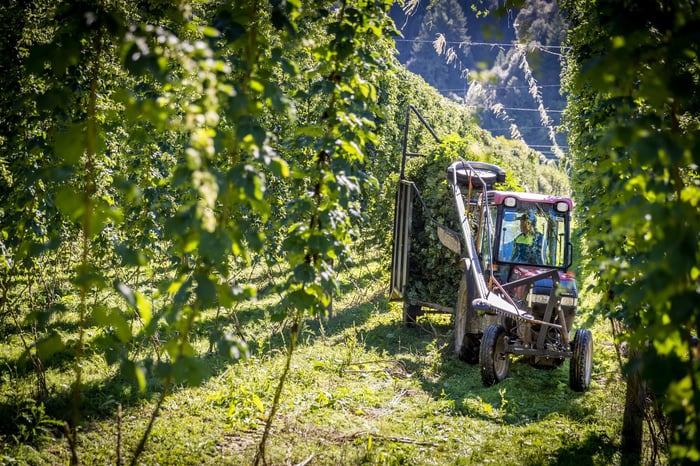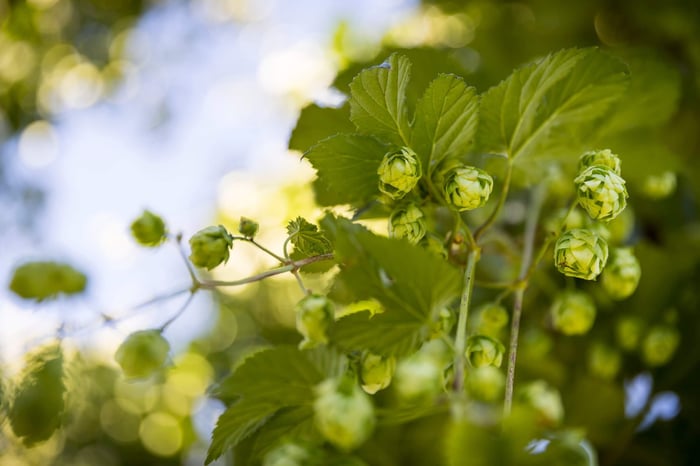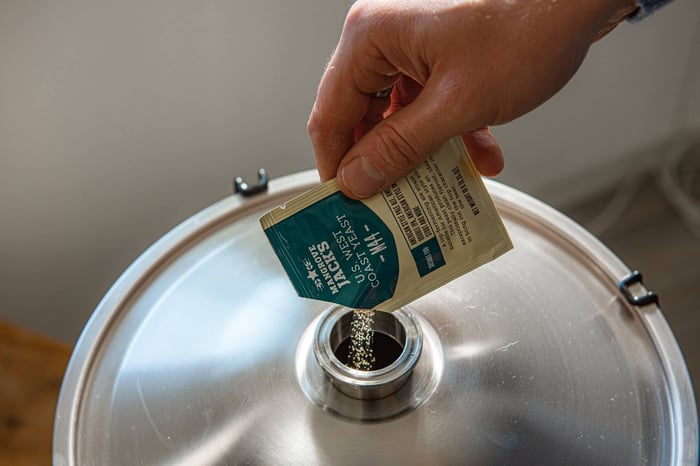Ever wondered what makes some of today's most exciting craft beers so darn delicious? The secret often lies in those little green cones from way down under – New Zealand hops. These aren't your grandfather's bittering agents; they're flavor bombs that have completely transformed the American craft brewing scene.
From Humble Beginnings to Hoppy Heaven
Here's a brewing story that'll make you appreciate every sip of your next IPA. New Zealand didn't start with the tropical fruit punch hops we know and love today. Back in the early 1800s, English and German settlers brought over traditional varieties like Fuggle, Golding, and Spalt – solid, reliable hops that did the job but didn't exactly set taste buds dancing.
Then World War One changed everything. With imports cut off, growers needed something economical and fast-growing. Enter the 'Cluster' variety from our very own California. This hop took off like wildfire, becoming the go-to choice for new plantings. But here's where the story gets interesting – and a bit dramatic.
When Disaster Strikes, Innovation Follows
Picture this: by 1940, entire hop yards were getting wiped out by black root rot. The 'Cali' variety that seemed so promising? Turns out it had a fatal weakness. Growers faced a choice: give up or get creative. They chose creativity.
What happened next is pure brewing genius. They took the disease-resistant Fuggle (remember that old English variety?) and crossed it with the Cali and other selections. The result? Three brand-new, rot-resistant varieties: First Choice, Smooth Cone, and Calicross. Talk about turning lemons into lemonade – or should we say, turning root rot into revolutionary hops!
The Nelson Region: Where Magic Happens
Most of New Zealand's hop farms cluster around the Nelson region on the South Island, and there's a reason for that. This area hits the sweet spot for hop growing – perfect sunshine, ideal rainfall, and temperatures that make hops practically grow wild along the roadsides from Murchison to Motueka.
The proximity to the ocean and unique soil composition work together like a perfectly balanced recipe, creating hops with characteristics you simply can't find anywhere else on Earth. It's like terroir for beer – each hop carries the signature of its homeland.
The Science Behind the Magic
Want to know what makes these hops tick? They need 15 hours of daily sunlight, 120 frost-free days during growing season, and six to eight weeks below 50°F in the off-season. New Zealand's latitude (41-42° South) puts it in that golden zone between 30° and 52° where hops absolutely thrive.
Your Guide to New Zealand's Hop Superstars
Ready to dive into the varieties that are revolutionizing American craft brewing? Each of these hops brings something special to the table, and we've seen them transform everything from sessionable ales to double IPAs across breweries from coast to coast.
The standout star? Nelson Sauvin – this hop literally tastes like white wine and tropical fruit had a beautiful baby. It's been a game-changer in American brewing, inspiring countless brewers to push boundaries and create beers that would have been unimaginable just a decade ago.
New Zealand Hops Flavor Profile Guide:
| Variety | Flavor and Aroma | Organic | Alpha Acid |
|---|---|---|---|
| Motueka™ | Intense fresh lime followed by a background of tropical fruit and lemon zest | X | 6.5-7.5% |
| Pacifica™ | A fine aroma hop with its own signature citrus "orange zest" marmalade character | 5.0-6.0% | |
| Riwaka™ | A unique aroma hop with a powerfully fueled tropical "passion fruit" character | 4.5-6.5% | |
| Wakatu™ | A really fine dual purpose hop with a heady mix of floral and citrus characteristics | X | 6.5-8.5% |
| Nelson Sauvin™ | Nelson Sauvin has the unique ability to impart a distinctive cool climate white wine "fruitiness" | X | 12-13% |
| Green Bullet™ | A dual purpose / bittering hop with a spicy "dried fruit" character and solid finish | 11-14% | |
| Pacific Gem™ | Described as producing oaken flavors with a distinct blackberry aroma | X | 13-15% |
| NZ Pacific Jade™ | A soft bittering / dual purpose hop with fresh citrus and complex spice characters | 12-14% | |
| Dr Rudi | A dual purpose / bittering hop with classic resinous pine and lifted citrus characters | 10-12% | |
| NZ Southern Cross™ | A dual purpose / soft bittering hop with a citrus "lemon zest" character with hints of pine | 11-14% | |
| Kohatu™ | A dual purpose hop with fresh tropical fruit characters and excellent finish and bitterness | 6.0-7.0% | |
| Rakau™ | A true dual purpose hops with stone fruit and fig characters and excellent bittering qualities | X | 10.0-11.0% |
| Sticklebract | An heirloom alpha hop that delivers solid bitterness matched to pine and citrus aroma | 12.30% | |
| Wai-iti™ | A fine aroma hop with fresh peaches and apricot character | X | 2.5-3.5% |
| Waimea™ | A big alpha hop that carries an even bigger weight of oils with lots of pine and citrus | 16-19% | |
| Taiheke™ | Dual purpose US Cultivar with citrus "grapefruit/lime | X | 6-8% |
| Chinook | Dual purpose US cultivar with pine "grapefruit/spice | 12.1-12.2% | |
| Fuggle | UK aroma cultivar with mild fruit "herbal/woody | 6.10% | |
| Golding | UK aroma hop with mild, delicate and sweet floral characteristics | 4-4.2% | |
| Liberty | US aroma cultivar with mild and spicy, subtle lemon and citrus characteristics | 5.90% | |
| Styrian Golding | European aroma hop with very mild, noble and spicy hop flavors | 5.1-6.1% | |
| Willamette | US aroma cultivar with mild and pleasant, slightly spicy floral tones | 6-7.6% | |
| Wye Challenger | Dual purpose hop with balanced bittering. Spicy, clean citrusy aroma with distinct herbal notes | 8.90% | |
| Moutere™ | high alpha hop with distinctive tropical, grapefruit and passion fruit characters | 17.5-19.5% |
Brewing Your Next Masterpiece
Whether you're planning a citrus-forward pale ale or a tropical fruit IPA that'll make your neighbors jealous, these New Zealand varieties offer flavors that'll take your homebrew to the next level. Start with something approachable like Wakatu for a balanced citrus character, or go bold with Nelson Sauvin if you want to create something truly unique.
The beauty of these hops is their versatility – they play well with American varieties and can transform familiar styles into something extraordinary. We've seen homebrewers create award-winning beers by simply swapping out their usual Cascade for Motueka, or adding a late addition of Riwaka to bring that passion fruit punch.
Grainfather Team





